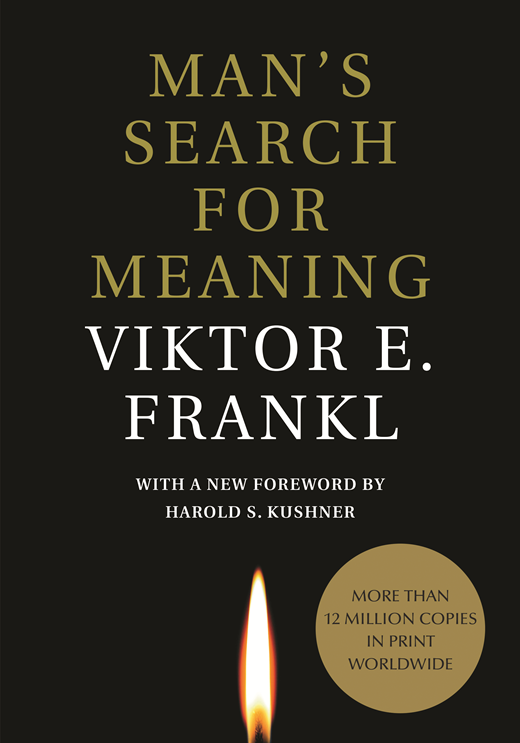Editor’s Note
Dr. Wendy Stock, who is the recipient of the clinical 2020 ASH Mentor Award, was one of my mentors during my fellowship at the University of Chicago. Like the many others who wrote in support of her nomination, I know Dr. Stock to be a teacher not only of clinical care and translational research, but also a person to admire — someone who teaches and lives an authentic life. One of the key moments of my fellowship was when she recommended that I read a memoir written by Dr. Viktor Frankl. I felt that on the eve of her international recognition as an outstanding mentor, others should read her recommendation and reflection.
About six months ago, at the beginning of the pandemic, Dr. Laura Michaelis approached me to ask whether I might consider writing a few words about a book I had shared with her nearly 20 years ago, and that has had a profound effect on how I continue to strive to live my life — Man’s Search for Meaning by Dr. Viktor E. Frankl. She thought that a reminder about this book and its poignant message might be a balm in this time of collective profound unease, uncertainty, and distress. In these past six months, I have reread this important book again and couldn’t agree more that its message is crucial for this pivotal moment in our history.
Dr. Frankl was born in 1905 and attended medical school at the University of Vienna where he earned an MD and PhD and was a practicing young Jewish psychotherapist in pre–World War II Vienna who was already being recognized for his early work on what motivates humankind, differing from one of his mentors, Dr. Sigmund Freud, who believed that our primary drive in life is pleasure. Dr. Frankl was just beginning to develop “logotherapy,” a term derived from the Greek word logos (“meaning”) and whose basic premise is that life’s driving force is discovery and pursuit of what we find meaningful. His work on an initial draft of papers that he hoped would crystallize his theory and subsequent therapeutic approach in a scholarly book was suddenly disrupted when he and his entire family were arrested by the Nazis. These papers, sewn into a jacket sleeve of his coat, were ripped from him as he was herded into Auschwitz in 1942. From 1942 to 1945, Dr. Frankl suffered unspeakably along with his fellow prisoners in several concentration and extermination camps, before being liberated by the Allied forces in the spring of 1945. His wife, brother, and both parents were among the 6 million who perished in the camps. During these horrific years, Dr. Frankl found the will to endure the suffering and survived, in part, because of his belief that the ultimate freedom is to take a stand, devote oneself to a cause, and set a direction regardless of the limitations that life imposes. He was committed to bringing his ideas forward and to using logotherapy to help others understand and find meaning, spirituality, and purpose in their lives. In the words of the German philosopher Friedrich Nietzsche, “He who has a why to live for can bear most any how.”
Dr. Frankl was a prolific writer and published dozens of books. The first version of this book was written in 1945 after his liberation, apparently in nine successive days, but only published as a first complete edition titled Man’s Search for Meaning in 1959. In the decades since its initial publication, it has had more than 100 printings in English and has been published in more than 21 languages because of its message, which resonates with every individual and every period in history. The book, which is first and foremost about survival, is divided into two parts: The first is autobiographical and describes indescribably horrible experiences while in the concentration camps. As Dr. Frankl said, “I had wanted simply to convey to the reader by way of a concrete example that life holds a potential meaning under any conditions, even the most miserable ones,” and by writing down what he had gone through he believed that others who are “prone to despair” could be helped. The second half of the book is a more direct explanation of his therapeutic doctrine logotherapy, which rests on three basic pillars: 1) a will to meaning (vs. pleasure); 2) that life never ceases to have meaning for every person, and; 3) that despite one’s conditions, one must take a stand, and that we will find ourselves freed through devotion to this cause.
Given this fraught moment in which we are living, I believe that each of us can benefit from reflecting upon Dr. Frankl’s simple, but incredibly insightful ideas. As a physician and a citizen of this world, I find myself challenged yet comforted by Dr. Frankl’s life and the message that he so beautifully delivers. Man’s Search for Meaning is relevant for all people and for all times, and never more so than at this moment.
Competing Interests
Dr. Stock indicated no relevant conflicts of interest.

